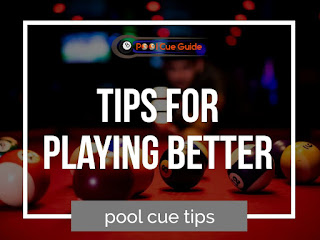Tips for Mastering the Pool Bridge
There’s a lot that goes into making the perfect shot on a green table. If you can’t keep your stick from getting wiggled or off-center, then you’re already set up for failure. You will end up either hitting your balls in the wrong spot or just miss entirely.
That’s why the pool bridge was invented; specifically, for situations like this. But mastering it is about every bit as challenging as handling the best professional pool cue or the ball. So how do you make sure that you can get your bridge mastery working the right way to get decent shots? Well, stick around, we’re about to find out.
Read Full Article Here : https://poolcueguide.com/tips-for-mastering-the-pool-bridge/
Find a Bridge You’re Comfortable With
Don’t let the critics fool you. The pool is just about every bit as physically demanding as any other sport out there. And one aspect about sports that’s always emphasized is keeping proper form. Whether you’re getting ready for a 100m sprint, dunking a ball into the net, or using a wooden stick to strike balls, they all have a recommended physical form and posture.
You’ll never be able to keep this posture active if you’re not comfortable. The fact is, everyone will have their preferred bridge technique that they’ll be comfortable with. We’re all designed differently, so it only makes sense.
Many will try to sell you on to the idea of using an expert technique that supposedly works for professional-level play. But at the end of the day, you have to do what comes naturally to you. Forcing yourself to fit a certain bridge-type will only tense your muscles up more and cause problems down the line.
Closed, Open, or Mechanical?
When it comes to pool bridges, there’s more than one type out there. Most basic pool bridges are broken down into open and closed bridges, as well as mechanical.
Open bridges will be a good enough starting point for most players. They also offer you the ability to easily raise or lower your cue for a shot as you see fit. In a majority of cases, they’re the go-to type of bridges.
Closed bridges are somewhat of a step up. They should be attempted once you have some serious experience under your belt. These bridges will let you go for more complex shots that require precise movement and spin.
In the kind of situations where you’re figuratively or literally up against the wall, you might want to opt for a mechanical bridge. They’re wooden and shaped, just your cue. They make it all the more easy to hit shots that are either too far away or seem downright hard to pull off on your own.






Comments
Post a Comment